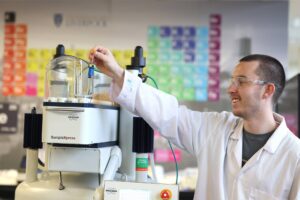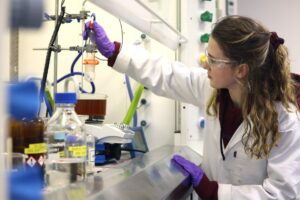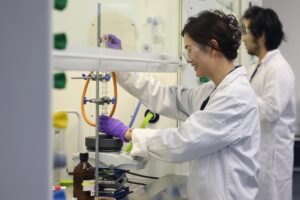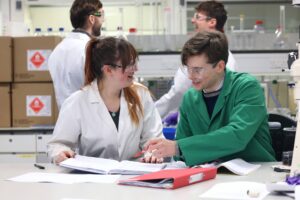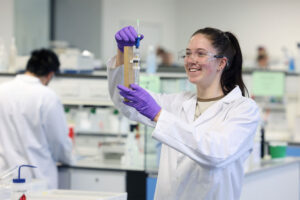In your final year you will continue to study the three main branches of chemistry, organic, inorganic and physical chemistry, but the emphasis is on the application of chemistry to the modern world. You will also further develop skills to enhance your employability and general chemistry skills, including a module on Further key skills and Molecular modelling.
There are a range of linked activities in the Faculty of Science and Engineering including the Department of Chemistry which aim to improve your cultural learning, as well as academic and/or communication skills; hence, your employability skills. Liverpool students pair up with your XJTLU counterparts to undertake an undergraduate assignment which runs on both sites simultaneously. Therefore, the tasks can then be compared and contrasted.
Year 3 students can take 15 credits from outside Chemistry, most notably Becoming Entrepreneurial (ULMS254). A modern language module can also be taken.
On the 2+2 programme, you'll study your third and fourth years at the University of Liverpool. These will be year two and year three of the University of Liverpool's programme of study.
Programme details and modules listed are illustrative only and subject to change.


